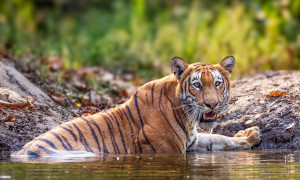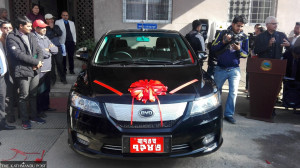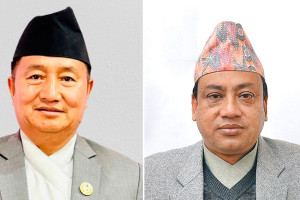Opinion
Some country for old men
There is a marked dichotomy between how Nepali society treats elder politicians and elder creative professionals
Contemporary Nepali society’s attitude towards the older generation appears to be ambivalent. While some elders are felicitated and invested with honours, albeit ostensibly in a number of cases, others, especially in politics, are seen as senile individuals who should make space for the younger generation. The most striking examples are seen within the giant communist parties—the UCPN (Maoist) and the CPN-UML. Under a somehow confusing yardstick, Maoist leaders—the vibrant and active Pushpa Kamal Dahal and his comrade/rival Baburam Bhattarai—are seen as old people. Most interesting is that they themselves are reported to be using their 50 or so years of age as a battle strategy.
Old age politics
Such a drubbing of senility only manifests in uneasy power battles within the political parties. The Nepali Congress (NC) party is age-happy. Nobody questions the senility of Sushil Koirala aka Sushil da because very old people have always led the NC. Girija Prasad Koirala made historical decisions in his mid-eighties, that too in a frail physical state; Krishna Prasad Bhattarai broke away with his party in his old age on the question of the monarchy, which he did not want to see go; and Ganesh Man Singh also became disillusioned with his party at a old age. The Congress, it seems, is age neutral.
I take the trend of calling able and agile leaders like Bhattarai, Dahal and Madhav Nepal old with a pinch of salt. In politics, leaders have resorted to dubbing their rivals incompetent and drained of energy. Such claims have often proven to be false in politics. A senior Mao Zedong appeared at the central committee meeting of the Chinese Communist Party and harshly critiqued his comrades as ‘capitalist roaders’, before calling on youths to rise up for a cultural revolution in the 60s. Mahatma Gandhi left his younger colleagues to put the messy house in order. The story is similar and long.
The semantics of Nepali political old age reflects a painfully contrived excuse by rival leaders that also shows how much they have deviated from the main mission of writing a constitution. They have a world of time to muse philosophically on their old age after writing the constitution. Therefore, I see age excuses among the communists as mere bravado and a desperate excuse to sideline the main issues.
The younger generation of leaders in some parties are saying they will promote old personas in the leadership but everything else, including policymaking and ideology, must remain in the hands of the youth. Fair enough. But that reflects a situation where the leadership question has become problematic. There is no centripetal force to hold the party together. That is not how the young generation should replace the old. The Bharatiya Janata Party (BJP) in India, which smoothly ushered in a younger leadership, is now discussing how to take care of positions for elder statesmen like LK Advani and Murli Manohar Joshi, who have been smoothly sidelined by the party. In Nepal, the degree of ambivalence among the political parties regards the role of elders and honouring them is high on the priority list, as leaders’ age has dominated discussions about who should lead the parties.
Ambivalent moods
Honouring elders has become a recent trend in Nepali metropolis. This subject is part of the changing social mood. Nepali society, especially charged with political moods and ideologies, has been working with an ambivalent mood as far as the approach to elders is concerned. There are two different kinds of moods in Nepali society these days, especially inside the Kathmandu metropolis. Honouring elders for their commendable social works has become a fad but on the other hand, removing elders from party leadership roles to make way for the young is also gaining momentum in political discourse.
Honouring elders who have done good works or important deeds in the fields of culture, literature and the arts is easily accepted by everybody. There is no travesty involved in honouring elders who have made a good name for themselves in society. Those who honour people in this category liberally admire some elders for their long work in society. People who do not have anything to lose in admiring such old people do so in fully embellished rhetoric. They do not fear if some other sections of the community take umbrage at their out-of-the-way admiration for elders, who they think have done culturally productive works. But when it comes to helping such elders materially by giving them sustenance, money or setting up memorials, people, especially those in government, tend to shy away glibly.
The paradox is that though honouring elders happens at a personal level, in the small loci of cultures and family environments, it becomes the responsibility of the state to find and protect or honour them as well as document their contributions. Honouring elders is thus the responsibility of the government and its institutions.
A case in point
It may be paradoxical to advocate the creation of an atmosphere and consensus for honouring political elders. But honouring cultural and literate elders is different. One example is in order. A fat book of 59 interviews with senior Nepali writers and cultural experts titled Sirjanara Dristikon, compiled by literary writer and erstwhile journalist Surya Subedi was published in Kathmandu. Out of the 59 interviewees nearly a quarter of them are very old. Some of them are past 90, but active. In their interviews, these elders open up the untold history of Nepali culture and the artistic world, which was also affected by politics.
The wide reception that this book received shows how different the question of honouring cultural and literary elders is in Nepal. This dichotomy between political elders and cultural seniors and the ambivalence between them shows that Nepali society is not averse to old people’s wisdom. But then, you should have something relevant—human and creative stories about society and the people to tell.




 26.21°C Kathmandu
26.21°C Kathmandu











